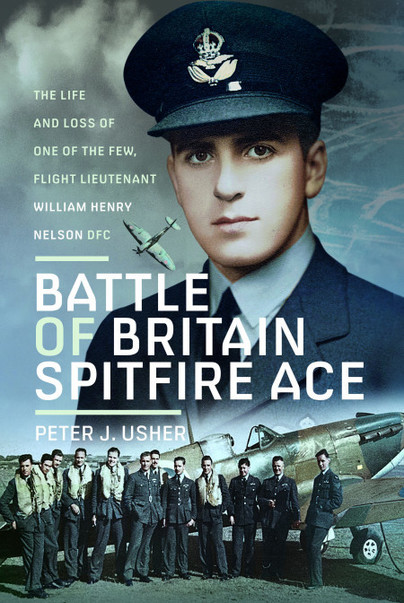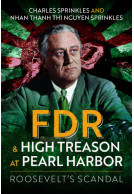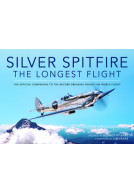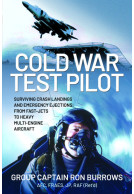Battle of Britain Spitfire Ace (ePub)
The Life and Loss of One of The Few, Flight Lieutenant William Henry Nelson DFC
Imprint: Air World
File Size: 6.6 MB (.epub)
Pages: 256
ISBN: 9781036106140
Published: 13th June 2024
| Other formats available - Buy the Hardback and get the eBook for £1.99! | Price |
|---|---|
| Battle of Britain Spitfire Ace Hardback Add to Basket | £25.00 |
Battle of Britain Spitfire Ace is the story of a young Canadian who in a short time, and for a brief time, mastered Britain’s most legendary war machine, the Spitfire. It is also the story of a young English woman who was for a short time his wife, and for a long time his widow, and of their son who for much of his life knew little about his father and is still learning about him. Their stories, based on their letters, diaries, and photos, unfold in richly detailed context as the setting moves from Montreal in Nelson’s youth, England in the last years of peace, the first (and largely forgotten) months of the air war against Nazi Germany, Canada during the war, and finally to post-war England.
William Henry Nelson was a first-generation Canadian Jew whose family name was originally Katznelson. Like many young Canadians in the 1930s, he wanted to fly. Nelson began work in Montreal’s aircraft industry, but in 1936, at the age of nineteen, he left a humdrum life on the ground to go to England, intent on becoming a pilot in the Royal Air Force. A year later he was posted to a bomber squadron. Willie (as his family and friends called him) was also a fine athlete. He was captain of his squadron’s team in Britain’s Modern Pentathlon competitions in 1938 and 1939. While stationed in Yorkshire, he met Marjorie McIntyre. Instantly smitten, they married days before the war began.
Nelson was one of the first Canadians to fly in combat over Germany, only days after the war began. The award of a Distinguished Flying Cross a few months later made him an instant hero to the Jewish community across Canada. In Britain’s desperate situation in June 1940 Nelson volunteered to retrain as a fighter pilot. Within weeks he destroyed five enemy aircraft, so becoming the only Canadian Spitfire ace in the Battle of Britain. Few fought as both bomber and fighter pilot during the Second World War, even fewer managed to excel at both.
Willie Nelson was shot down on the first day of November, 1940, near the English Channel. He never saw his adversary, who may have been one of Nazi Germany’s most decorated fighter pilots. Nelson was 23 years old, and by then the father of a two-month old boy, William Harle Nelson.
Marjorie took her infant son to Canada in 1941, seeking to meet her late husband’s family and provide little Bill the opportunity for a better life. She was one of the first war brides to do so. Marjorie was unprepared for the gulf in culture and class with Willie’s mother, and she was shocked by the antisemitism she encountered in Montreal. She left the city after a few months to begin her life anew, alone in a strange country. Marjorie soon remarried a Canadian, Ted McAlister. In 1957 they moved to England where Bill, having taken his stepfather’s surname, would become a prominent figure in Britain’s cultural life. Only in his thirties, however, would Bill come to learn of the family and origins of the father he never knew.
On the 80th anniversary of the Battle of Britain, the Royal Air Force Museum in London featured Nelson in its exhibit about the ‘hidden heroes,’ the Jews who volunteered to fight in the RAF in the Second World War. Nelson had said little about his Jewish identity, though it was consequential to him and to others during his life and afterwards. Over the course of his four years in England, Willie Nelson refashioned himself. But who had he become? Who was the man behind the iconic portrayals, what had been his formative influences and his guiding lights? How did he come to do what he did and what, in those last few years in England, did he live and die for?
As featured in
Flypast - May 2025
As featured in
Scramble 1940 – Official Newsletter of the Battle of Britain Historical Society – Spring/Summer 2025
“We do learn of the life and loss of one man and his family, a story worth reading and remembering.”
The NYMAS Review
As featured in
Flypast - November 2024
As featured by
Aviation News - September 2024
Of the 2,962 fighter pilots that flew in the Battle of Britain, 117 were Canadian, 29 of which were killed. This very welcome biography tells the story of one of them, and the only Canadian who became an ‘ace’ when flying Spitfires during the Battle. Nelson’s path to Fighter Command was unusual. Having joined the RAF in 1937 aged 20, after pilot training he joined Bomber Command, flying Whitley night bombers on early night raids for which he received the DFC. Volunteering for fighters in June 1940 he converted to Spitfires and joined the famous 74 Squadron the following month. Between August and October he was credited with five victories. However, two days after his final success he was shot down and killed in an engagement with Messerschmitt Bf 109s off Dover. The author has well-crafted Nelson’s story from growing up in Montreal through training and his bomber tour in the first half of the book. The remainder occupies his time in 74 Squadron and demise leaving a two-month-old son had his subsequent search for the story of his father.
Andrew Thomas - Author and Historian
"...an interesting experience awaits."
Battle of Britain Memorial Trust website
Read the full review here.
About Peter J Usher
Peter J. Usher is a Canadian geographer well known for his research and consulting career in northern Canada. Later in life he became intrigued by the experience of those in his family who served in the Second World War, mostly in Bomber Command, prompted by the legacy of their letters and diaries. Supplemented by archival research and site visits in Britain and Europe he began writing books and articles about the lives of Canadians in the air war against Nazi Germany. He is the author of Joey Jacobson’s War: A Jewish Canadian Airman in the Second World War, and of several scholarly articles.
Born in Montreal, Peter obtained post-graduate degrees in geography from McGill and the University of British Columbia. His work in the North began on a survey crew in northern Ontario, and soon came to focus on Indigenous land rights and the environmental impact of industrial resource extraction, spanning the North from Labrador to Alaska. He and his wife live on their hundred-acre woodlot in Lanark County, Ontario, which they manage as part of the Eastern Ontario Model Forest. He enjoys snowshoeing in winter, working in the bush in spring and fall, and exploring the back roads on his bicycle in summer.
















